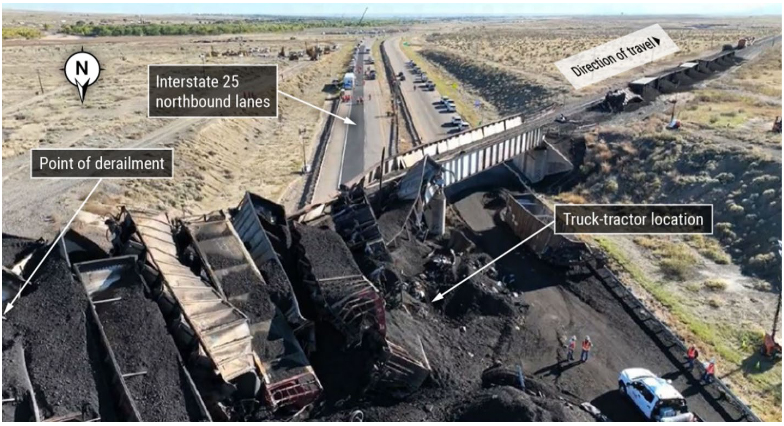
WASHINGTON — A rail that broke because of the failure of a weld led to the Oct. 15, 2023, derailment of a BNSF coal train at a bridge over Interstate 25 near Pueblo, Colo., leading to the death of a truck driver, according to a National Transportation Safety Board report.
The investigation report was released today (Feb. 18, 2025). The incident occurred about 3:24 p.m. and saw 31 cars of a three-locomotive, 124-car coal train derail just north of the bridge; derailed cars struck and partially collapsed the bridge, and six cars fell onto I-25, with at least one falling onto a northbound truck, killing the driver.
The derailment and fatality caused an estimated $15.6 million in damage. It led to the full closure of I-25 for three days, with the southbound lanes reopening first and northbound traffic restored a day later [see “Southbound lanes of I-25 reopen …,” Trains News Wire, Oct. 18, 2023].
NTSB analysis determined the rail broke as the train passed, and that the break occurred at the site of a thermite weld completed less than five months earlier, with the break beginning at the base and moving upward. Measurement of the rail section showed a difference in profile that, under BNSF rules, should have required a compromise kit to address the mismatched weld configuration; this would have prevented weld flash that pooled under the base of the rail. The report says the welder “likely did not use one of these kits,” leading to the accumulation of weld flash that concentrated stress and led to the cracking.
As a result of the incident, BNSF now analyzes failed welds to determine the cause; if welding practices contribute to a failure, the responsible team is retrained. Also, supervisors now audit 10 random thermite welds per month to confirm the correct kit was used.






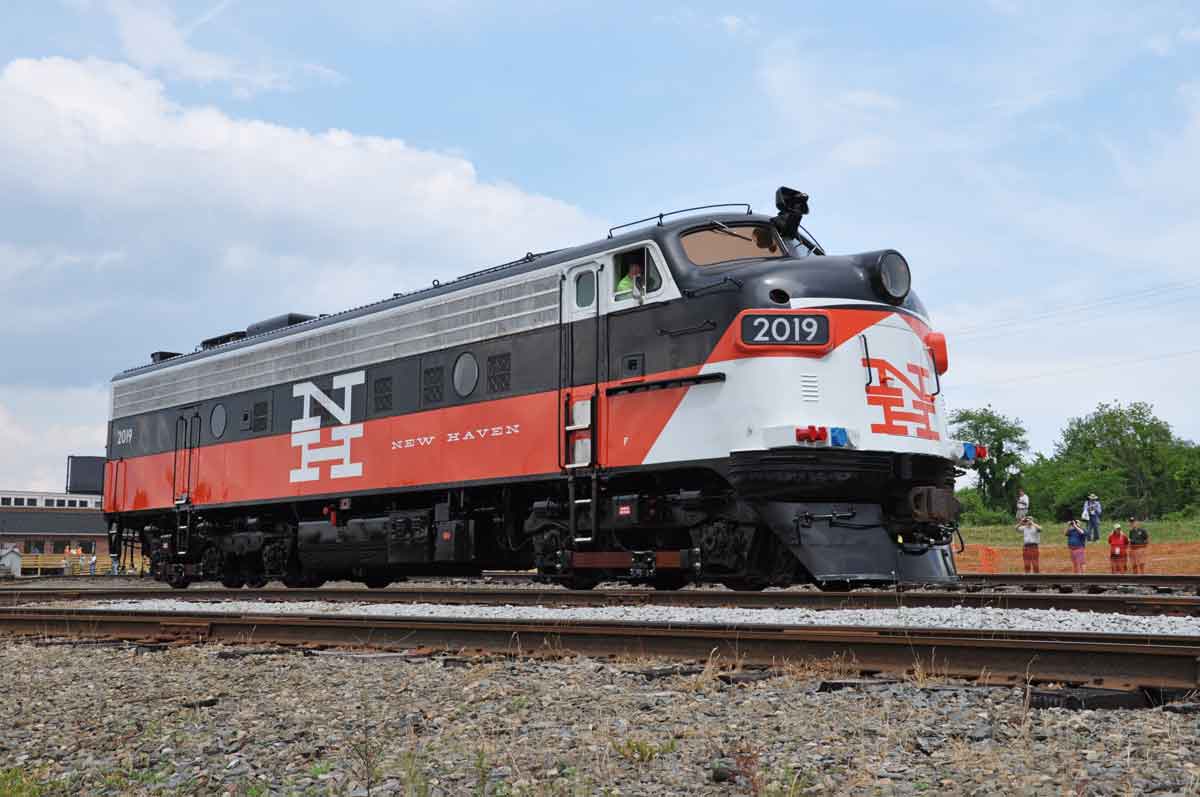
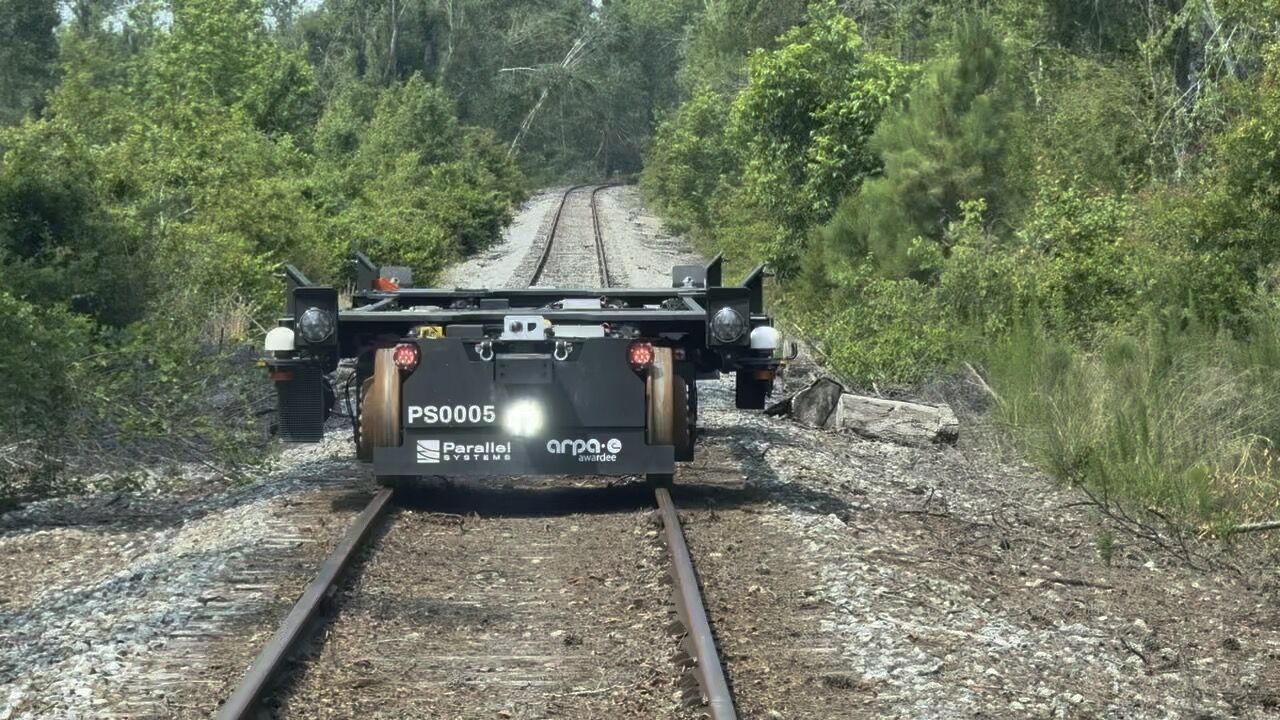
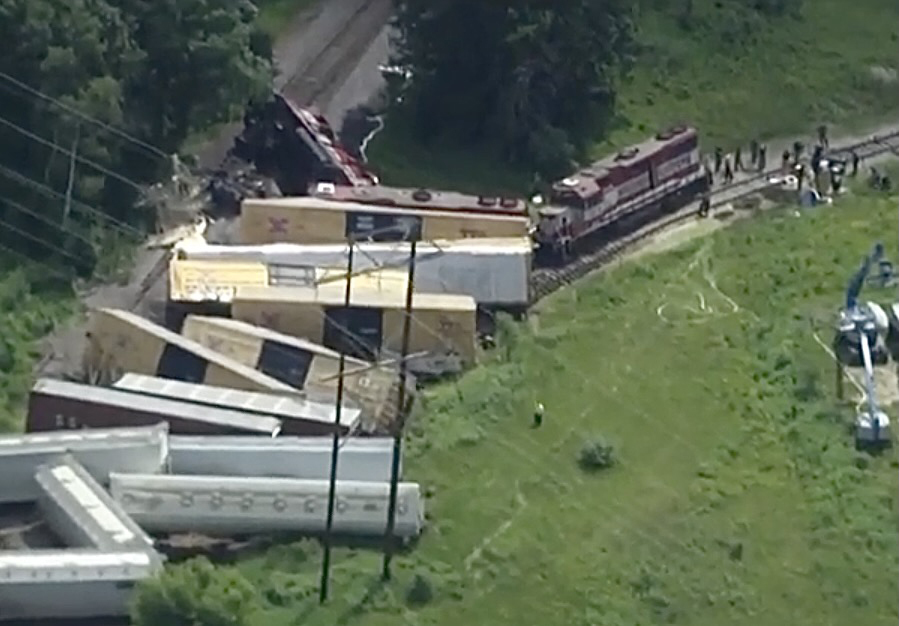
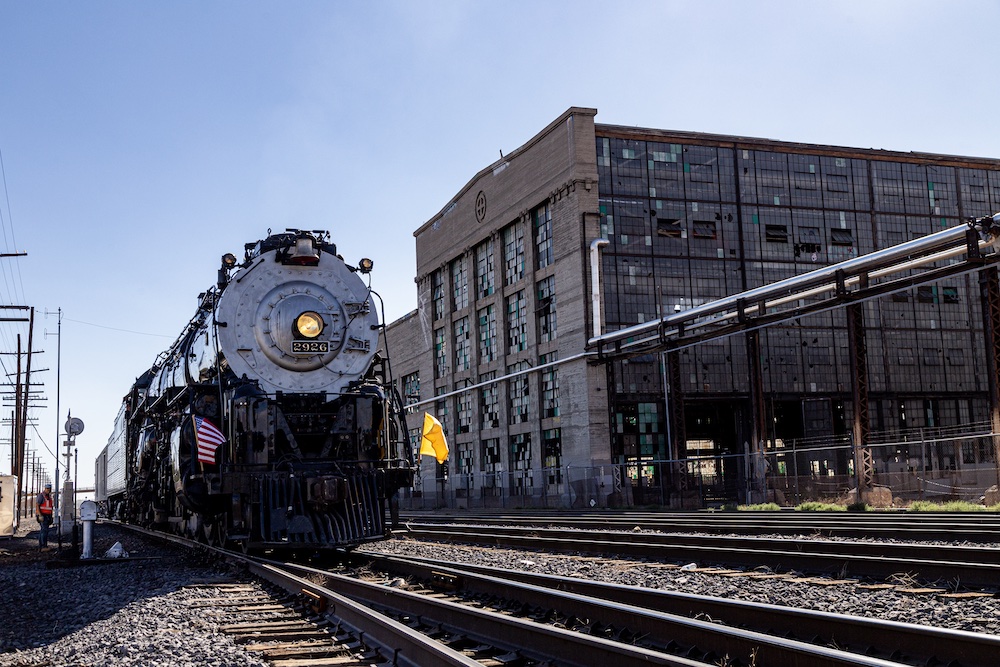




Actually the saying is, “…for the loss of a nail, the battle was lost…”
I hate to be the MOW employee who made that weld.
It shows the importance of detail and correct procedure. The old saying,”for the want of a nail a horse was lost…”